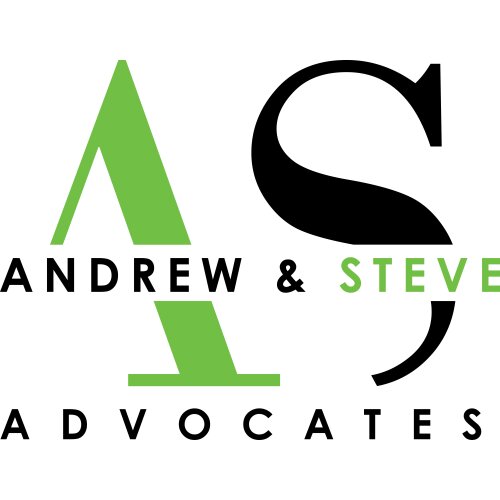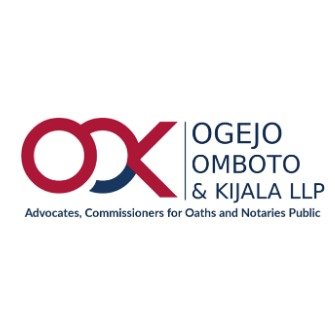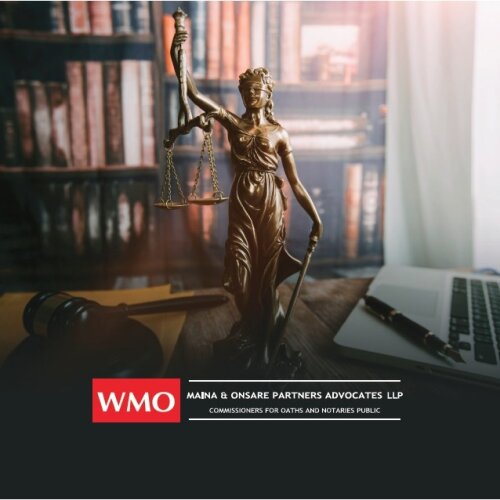Best Insurance Lawyers in Kenya
Share your needs with us, get contacted by law firms.
Free. Takes 2 min.
Or refine your search by selecting a city:
List of the best lawyers in Kenya
About Insurance Law in Kenya
Insurance law in Kenya regulates the way insurance companies conduct business and how they serve their clients. The primary legislation governing the insurance industry is the Insurance Act, supported by various regulations and the oversight of the Insurance Regulatory Authority (IRA). The Kenyan insurance market is growing and diversifying, offering products such as life insurance, motor insurance, health insurance, and other forms of coverage. Given the complexities of these products, understanding the legal framework behind them is essential for policyholders and insurers alike.
Why You May Need a Lawyer
There are several situations where legal assistance might be necessary when dealing with insurance matters in Kenya:
- Disputes with an insurer over claims settlement or policy terms.
- Clarifying the intricacies of insurance policies to ensure adequate coverage.
- Instances of bad faith by an insurance company, such as delayed payments or unjustified claim denials.
- Navigating complex regulatory requirements for insurance companies or brokers.
- Negotiating settlements after an insurance claim is disputed or rejected.
Local Laws Overview
Key aspects of local laws relevant to insurance in Kenya include:
- The Insurance Act: This is the primary legislation that guides the regulation and supervision of insurance companies.
- Insurance Regulatory Authority (IRA): The IRA regulates and supervises the insurance industry, ensuring compliance with the law and protecting policyholders.
- Consumer Protection Act: Provides broad consumer rights which can apply to insurance contracts, including the requirement for fair treatment and transparency.
- Policy Contracts: Governed by contract law, these define the rights and obligations for both insurers and insureds and must comply with statutory requirements.
Frequently Asked Questions
What is the role of the Insurance Regulatory Authority in Kenya?
The IRA regulates the insurance industry to ensure compliance with the Insurance Act and other relevant laws. It aims to enhance consumer protection and promote the development of the industry.
How can I resolve a dispute with my insurance company?
If you have a dispute, you can file a complaint with the Insurance Regulatory Authority or consider seeking mediation or arbitration. Legal counsel may also guide you through the process.
What are the common types of insurance in Kenya?
Common types include life insurance, motor insurance, property insurance, health insurance, and liability insurance, among others.
What should I consider when buying an insurance policy?
Consider the coverage offered, the reliability of the insurer, the premium costs, policy terms, and exclusions.
Can an insurance company refuse to pay my claim?
Yes, an insurer may refuse a claim if the claim falls under policy exclusions, was fraudulent, or if there was non-disclosure of material facts. It is critical to understand the reasons for any denial.
What does 'insurable interest' mean?
Insurable interest refers to a situation where the insured will suffer a financial loss in the event of damage or loss of the insured item or person.
Is health insurance mandatory in Kenya?
While not yet mandatory for all citizens, mechanisms like the National Hospital Insurance Fund (NHIF) require contributions from salaried employees, providing some level of coverage.
How are insurance premiums calculated?
Premiums are calculated based on the risk profile of the insured, the coverage amount, the insurance period, and other underwriting factors.
What happens if I stop paying my insurance premiums?
If premiums are not paid, the insurance policy may lapse, and coverage will cease, although some policies offer a grace period.
How do I choose a reputable insurance lawyer in Kenya?
Seek recommendations, verify their expertise in insurance law, consider their experience and reputation, and discuss fees and communication channels before engaging their services.
Additional Resources
For additional information, the following resources may be helpful:
- Insurance Regulatory Authority (IRA): Offers guidelines and resources for both consumers and industry practitioners.
- Consumer Federation of Kenya (COFEK): Advocates for consumer rights and can offer advice and support in insurance matters.
- Kenya Insurance Brokers Association (KIBA): Provides insights and guidance relating to insurance brokerage services.
Next Steps
If you need legal assistance in insurance, follow these steps:
- Assess the issue at hand and gather any relevant documentation, including your insurance policy and communications with your insurer.
- Research and list potential insurance lawyers who have experience in handling similar cases.
- Set up consultations to discuss your case and evaluate their legal approach and fees.
- Select a lawyer based on their expertise, communication style, and affordability.
- Work closely with your chosen lawyer to navigate the legal process and seek a resolution to your insurance issue.
Lawzana helps you find the best lawyers and law firms in Kenya through a curated and pre-screened list of qualified legal professionals. Our platform offers rankings and detailed profiles of attorneys and law firms, allowing you to compare based on practice areas, including Insurance, experience, and client feedback.
Each profile includes a description of the firm's areas of practice, client reviews, team members and partners, year of establishment, spoken languages, office locations, contact information, social media presence, and any published articles or resources. Most firms on our platform speak English and are experienced in both local and international legal matters.
Get a quote from top-rated law firms in Kenya — quickly, securely, and without unnecessary hassle.
Disclaimer:
The information provided on this page is for general informational purposes only and does not constitute legal advice. While we strive to ensure the accuracy and relevance of the content, legal information may change over time, and interpretations of the law can vary. You should always consult with a qualified legal professional for advice specific to your situation.
We disclaim all liability for actions taken or not taken based on the content of this page. If you believe any information is incorrect or outdated, please contact us, and we will review and update it where appropriate.
Browse insurance law firms by service in Kenya
Kenya Attorneys in related practice areas.
Browse insurance law firms by city in Kenya
Refine your search by selecting a city.

















